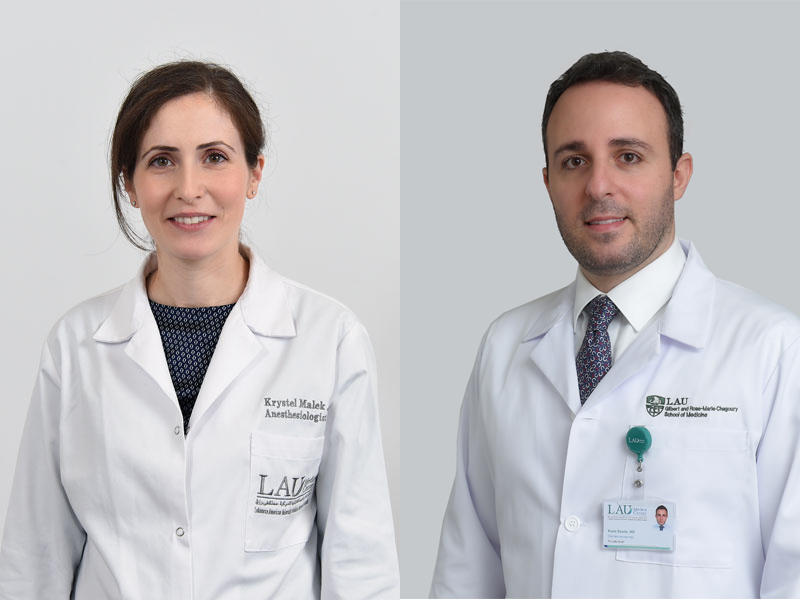Dr. Rami Saade, Assistant Professor, Clerkship Director of Otolaryngology /Program Director of the Otolaryngology Residency and Dr. Krystel Malek, Anesthesiology Instructor
The little boy was our son’s friend from football practice.

We live near the hospital, so when the blast took off and shattered our windows and doors, we made sure that the kids were OK, dropped them off at our neighbors’, and rushed off to the hospital.
While some of the patients recognized us from our social circles, it was hard for us to do the same because of their injuries.
RS: One of the first patients I attended to was a little boy who was brought in unconscious on a wheelchair. I sutured him in the hallway, and moved on to other patients, only to realize later that he was actually my son’s friend. His wounds were so severe that I hadn’t recognized him.
In every OR there were two – sometimes three – patients being operated on simultaneously: on the operating table, stretchers and even wheelchairs. Superficial injuries did not get anesthesia.
We were truly overwhelmed but thankfully none of us panicked. The next day was very similar in terms of the number of people that we saw, as we had to call patients back in to go over their fractures again, and attend to less serious wounds that could afford to wait. There were also some critical, lengthy surgeries for head and neck injuries, which had to be scheduled over the weeks that followed.
KM: I was on call that day, and I had just finished duty at the OR, gone back home, and was with my husband [Otolaryngologist Rami Saade] and kids when the blast happened. I coordinated with my sister to pick up the kids from our neighbors’ and followed my husband straight to the hospital.
Naturally, I went to the ER first, where I started helping people with more superficial wounds. As soon as we started receiving more critical cases that required immediate surgery, I moved on to the OR. In the elevator, I was joined by a couple who were taking their son to the OR. I didn’t recognize them at first, but after a second look, I realized that the little boy was my son’s friend from football practice. That moment left me quite shaken, although he was not as critical as other patients we had seen.
Seeing all our colleagues – with no exception – join us that night lifted our spirits. We were short on tools and resources such as stretchers and ventilators, but together we acted fast and collaborated seamlessly. We did well under the circumstances.